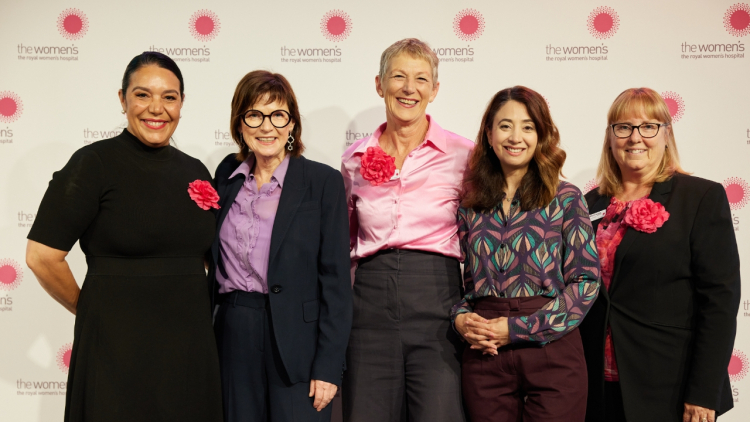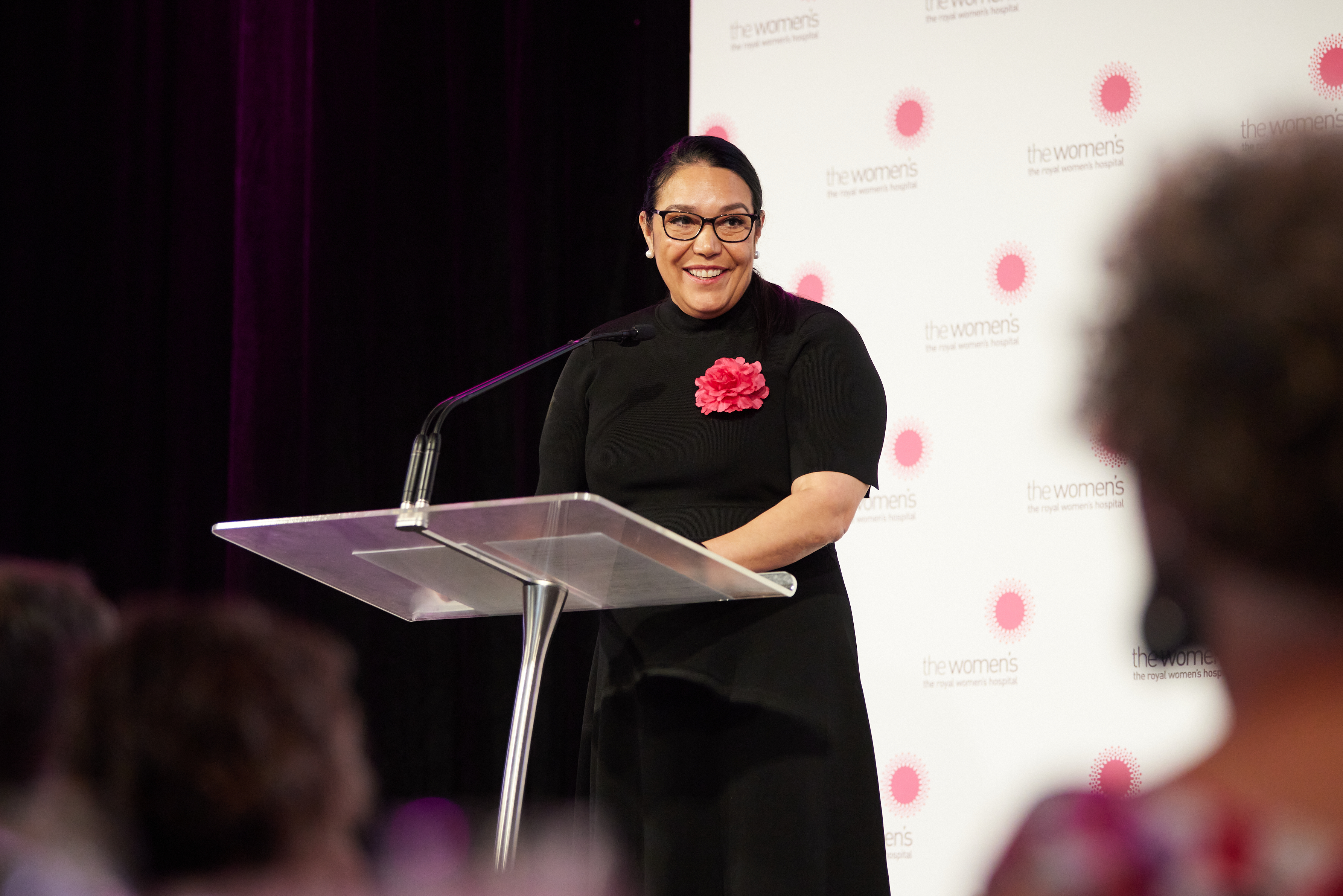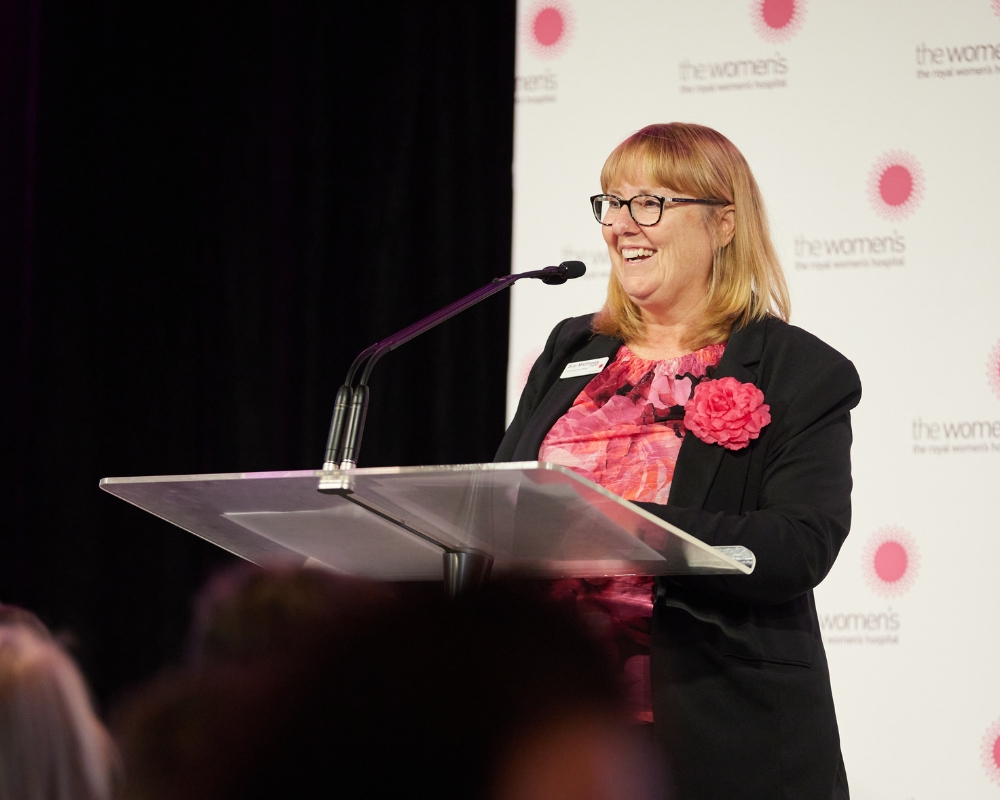
The Women’s International Women’s Day Breakfast was anchored by the message: we need to embrace and address uncomfortable truths to close the Indigenous health gap.
This sentiment was the message of keynote speaker, Victoria’s 2024 Australian of the Year and outgoing CEO of the Lowitja Institute, Dr Janine Mohamed.
It was echoed through speeches by the Women’s Chief Executive Officer Professor Sue Matthews and the Victorian Minister for Health, Health Infrastructure and Ambulance Services, the Honourable Mary-Anne Thomas.
More than 300 members of Melbourne’s health, community, government and corporate sectors attended the annual breakfast event on 7 March 2024, which was supported by HESTA.

Uncomfortable truths
Dr Mohamed, who is a proud Narungga Kaurna woman and a Board Director at the Women’s, called for Australians to acknowledge the country’s colonial history – and the ongoing ramifications of that history for Aboriginal and Torres Strait Islander women and children.
She called out the racism that First Nations people face, leading to poorer health outcomes.
“We need to face, embrace, challenge and address uncomfortable truths in order to change the course of women’s lives,” she said.
“The healthcare system's compliance in the harm caused to Aboriginal and Torres Strait Islander people, especially women and children, is one of those uncomfortable truths we need to embrace.”
Standing united
Dr Mohamed said truth telling is a healing process.
She encouraged all Australians to be agents of change in their workplaces, families and communities.
“Aboriginal and Torres Strait Islander people represent three per cent of the population. Imagine what could be possible if the other 97 per cent of Australians were allies in addressing racism, promoting equity, valuing culture and Country, and creating cultural safety,” Dr Mohamed said.
“Together, we can create a future where all women, regardless of race or background, can thrive and flourish.”

Collaborating for healthier futures
Professor Matthews emphasised the need for collaboration to create healthier futures for women and girls.
“While we have made great progress in women’s health over the decades, there is still inherent bias and inequality in our healthcare system, and it directly impacts women, girls and gender diverse people,” she said.
“When we make time to really listen to the experiences of all women, we start to understand there is another way to provide healthcare, one that is not delivered to them but in partnership with women and communities.
“My hope is we make room for different voices and experiences, and that we embark on a journey of truly shared decision-making.”